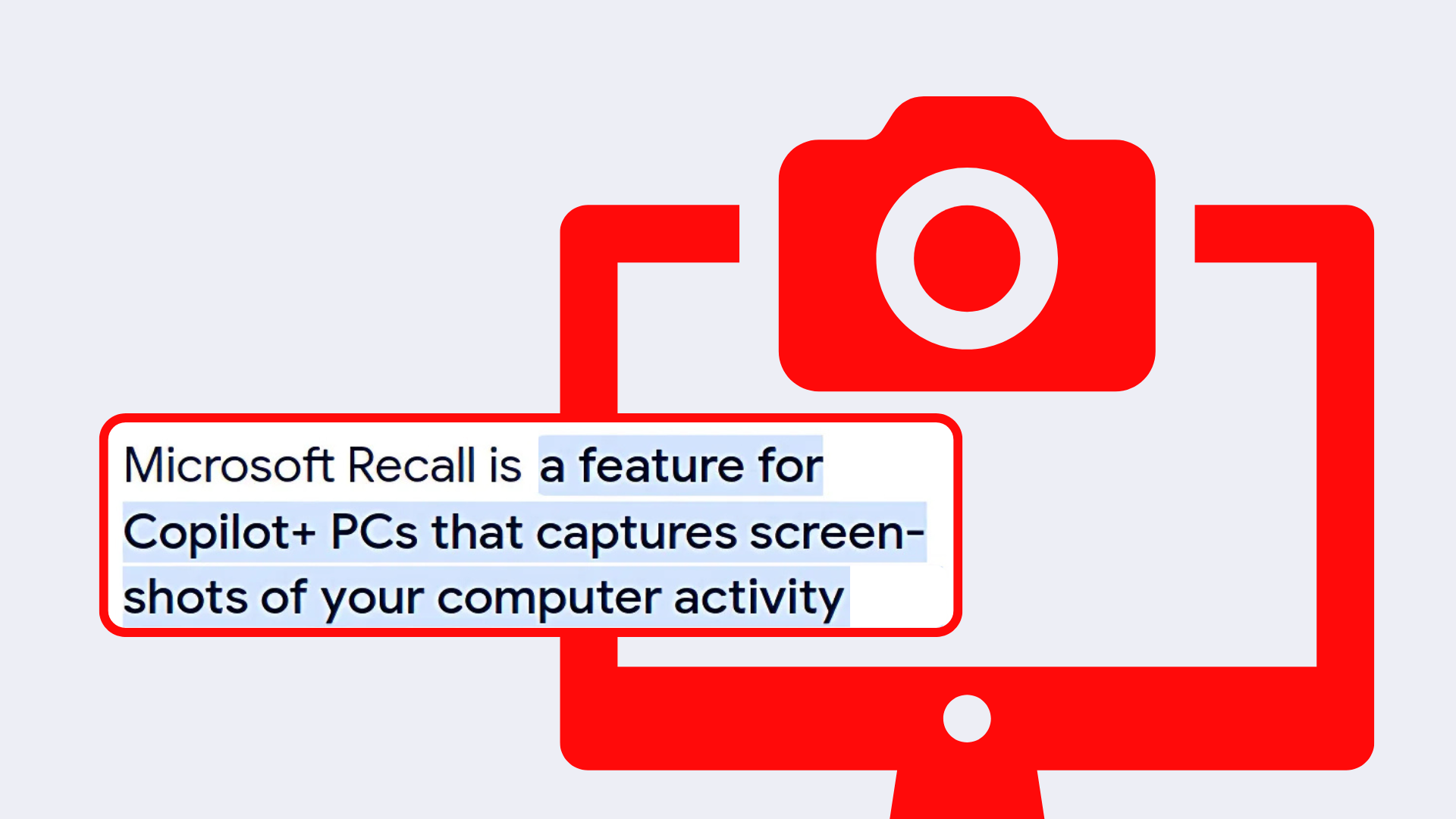Step 1: Install Linux.
Arch btw.
I wish it were that easy. I’m pretty tech literate and I’ve had Linux installed on and off since the late 1990’s. I’m running fedora desktop on a dual boot machine that also has windows 10. The PC will run windows 11 but just like everyone else I’m not excited to upgrade.
But I still have to hop over to windows to do things. I know it’s a chicken and egg thing, but Linux just needs to get over the hump if ease of use and app availability.
Having to switch from. App1 to app1 that boat do say, CAD, is hard. It’s a learning curve. And add that learning curve into also switching to Linux and it’s overwhelming.
I actually got my dad on fedora, and he went all in and set it up, and worked quite diligently to get everything working for how he used his computer. He did this because his PC was fine but not windows 11 compatible. End the end there were just too many things that he struggled with and he broke down and bought a new PC that came with 11. One of the big issues he had was with documents. Syncing documents that he was editing.
He was OK relearning a new Libre Office but it was syncing it back to a Google drive or something that ultimately did not work for him. (I can’t remember exactly what he was doing).
He ran with Fedora for a couple months before giving up
I highly recommend using an old laptop and keeping the windows machine. This allows you to fully use the linux laptop as your not booting back and forth. Further with these type of issues a “bleeding edge” distro like fedora is not ideal. My recommendation has always been zorin for a set it and forget it distro. Its an ubuntu spin that uses the stable release and tends to be a bit late even on that (which is most peoples complaint about it) but it is good at being stable and having everything you need out of box as well as emulating a basic windows feel.
Getting certain Windows apps to run on Linux is still impossible, unfortunately.
What I don’t understand is that file syncing is well supported. While I would never condone using a Google product, Celeste and Insync both support Google Drive. Aside from those, Dropbox has a native Linux package, and a self-hosted NAS is always a sound investment.
Ya, for my father (in his 70s) I was proud he gave it a real effort, but there were just too many changes and things that broke his workflow causing him to bail on it
I run a W10 LTSC VM on both my laptop and desktop for this purpose. I refuse to use Windows on bare metal, but I also understand that some software simply does not exist (nor functions under Wine) on Linux. Things like Adobe Acrobat, which I need for legal things from my lawyer for custody stuff, some vehicle diagnostic software, and software for my fucking labelmaker (Brother PT-D600, broken screen, will fix or replace eventually).
Ya, it’s annoying for sure… As I said, chicken and egg type thing. The market share has to be there before these companies will invest anything in linux. You’d think macos would be a gateway to them providing linux support but that doesn’t seem to translate well.
Doctors hate this one simple trick!
Just installed cachy on my partners PC. They just play games, I handle the maintenance.
So far they are impressed at how quick it feels and how fast and unintrusive the system updates are.
Love to hear these success stories and positive impressions and good vibes. Hope it lasts! 🥰
My favorites PoPOS. And learning linux can lead to a good paying job.
Step 412: realize that there is no REAL alternative to Excel.
LibreOffice Calc isn’t good enough? I rarely use it so I have no idea.
What features of Excel do you use that warrants exclusivity? I’m genuinely curious.
Mountains and mountains of janky spaghetti code VBA macros. That’s the only answer left.
Does anyone have any go-to resources to help with scripting LibreOffice Calc? I do not need to convert Excel/VBA scripts for use with LibreOffice; I am fine writing things from scratch. But learning VBA at work was incredibly easy because I could just do a generic Internet search for what I want to do, and there would be a dozen different help posts and articles with detailed explanations and exact code to solve the problem with VBA. But on the LibreOffice Calc side, I cannot find much useful information, for either BASIC or Python.
you can make do for office apps. try graphic design.
Then you are probably using Excel for the wrong thing
I have better things to do than spend hours trying to do simple things like permanent mounting of a network drive.
Setting aside for the moment that it is a much better idea to just stop using windows. One of Microsofts arguments for why you shouldn’t continue using Windows 10 is because it will stop being updated and will soon be insecure and get inundated with malware, adware, spyware ect. But Windows 11 already comes preinstalled with all of that so what difference does it make?
You’re delusional if you think Microsoft’s preinstalled crap is at all comparable to what hackers will do with a vulnerable PC.
Also this feature in particular is only for AI PCs which your Win10 PC probably won’t upgrade to.
Watching Windows gets worse and worse is a lot more fun when you don’t have to use it. I use Mint btw.
Fun for us. Not so fun for people who have to use it.
It is sad to see the mental gymnastics people do to justify their inertia.
“It’s opt-in!”
“You can disable feature X easily by editing the registry”
“You can install this tool from a shifty site to restore that feature MS disabled”
LMDE here. No ragrets. Mint features, Debian stability, and none of the Canonical weirdness.
I really liked LMDE. I eventually moved to arch though because I’m a tinkerer at heart. If I need stability without constant updates though, a Debian based distro is my go-to. LMDE for a desktop, or just straight up Debian with no thrills for a server.
For my servers I also really liked Truenas scale and Proxmox, but if I need something generic I go with Debian as well yess
The emails you write to people who use Windows are not private anymore too
Emails you write to literally anyone are no longer private the moment it leaves your outbox.
Well, unless you are one of the dozen people using gpg encryption.
That is not going to stop Windows Recall from screenshotting the message once decrypted.
What I mean is that you don’t have control over it anymore, whoever received it can show it to whoever and whatever they choose.
deleted by creator
Unless you used PGP or something, emails were never “private” in any meaningful sense of the word.
@knatschus @SaharaMaleikuhm This is an interesting take. I hope that Email Clients which supports GPG ( none Microsoft Products ) will also deny recall from function like brave does by default -> https://www.theregister.com/2025/07/23/brave_browse_block_microsoft_recall/
It would also be a interesting question if under GDPR companies need to tell you that they might have shared your emails with Microsoft because they enabled Recall ( if they so do ) …
So many questions …
Debian Rolling here. Have used different distros and I dont judge anyone who wants to use Linux. Glad you made the switch.
I have almost none of the issues people complain about around here. For example, my install has no Recall to turn on if I wanted to. My only guess is that I used a vanilla ISO. And yes, it’s updated as of this morning.
Think you need an AI processor for it
My work laptop is a Surface 7 with that NPU (miss my Thinkpad T15 already), and it has absolutely zero “Recall” feature that I could find. Company uses W11 Enterprise though, so maybe that has something to do with it?
Yeah, your company IT department probably blocked it with group policy. I suspect most companies will do so if they care about security.
For the folks saying install Linux keep in mind you can indirectly be captured by this feature.
For example if you’re playing an online video game you’ll be captured or your chat messages in your messaging app.
Of course, the idea is that there’s less risk of that the more people switch.
You can’t convince 99% of windows users to switch, the real solution is done via legislation. The force of a government is more powerful any boycotts you can muster. (For example: European Union has been passing a regulations on right to repair, do privacy laws next)
Why not both? As Linux achieves more and more momentum, you are bound to see real change in how Microsoft treats its users.
Legislation is a poor way to force populations into changing away from something they choose to do/use. As the saying goes “It’s hard to talk someone out of something they weren’t talked into”.
Example: See France or Somalia
In this case the legislation would be used to ban recall and similar features, not to drive people away from windows.
That’s pretty easily avoidable, too. Don’t play online games, or talk to people. That’s what I do.
And Linux will actively help you avoid doing both of those things.
Watch as the Linux drones swarm in to drown out people seeking actual answers.
To be fair, removing the entire OS does disable this feature
And easier
man with gaping wound in his skull pissed that people keep suggesting he go to a hospital.
“Just like I told you, insufferable hospital maxxis, I swear!”
More like:
Man broken down on the side of the road pissed at people in cars yelling “should have bought a Toyota!” as they drive by.
Does it matter? No. Is it annoying? Yes.
Does it matter? Yes! Goddamnit! I’ll buy a Toyota next time! FUCKING HELL!
Oh, this is actually based, they were right all along, holy fuck!
Sure bud.
The one thing keeping me from going all-in on Linux is the users being insufferable.
You can just use linux. You don’t have to hang out with them.
You’re seeing insufferable people who also happen to use Linux, as insufferable people also like to be early adopters so they can say they are different and therefore better.
There are plenty of super helpful people in the community, and Linux is well past the early adopter phase. The transition from Windows is smoother than it has ever been.
Man they must really hate the mass uptake. Makes them less special with every install.
(I keed, we all know they identity politic with the distros instead)
Yes, a lot of Linux users are insufferable, but there are also people willing to help in a nice and normal manner …
Those are not the ones crawling out of the woodworks.
Saldy you are mostly right, bnut there are people like me who want to help (as far as I can)
I think the Doctor Who fanbase is the actual worst out of all fanbases but I still like watching the show. you don’t have to participate in the community if you want to use something. I use Linux but I’m not wearing thigh high socks and sitting in the Arch discord all day.
But do you own the stockings?
yes when I installed Arch a week later a pair of stockings showed up in the mail oddly enough.
Unfortunately my experiences with linux tell me that i will have to engage with the community, because there will be shit i need to look up and fix fairly often.
“I won’t use this thing, because fans of this thing are annoying.” The willingness of people to cut off their nose to spite their face never fails to amaze me.
Came here for the “use Linux” comments. Like clockwork. To be fair: I’m guilty of it too.
Just lmao… https://i.imgur.com/mUwTITV.jpeg
Install Linux.
I came to this
You what
Got very excited
I need Win11 for work. Specifically, Grasshopper. I’ve tried alternatives. They suck.
Thus, debloat methods are very welcome.
https://github.com/ChrisTitusTech/winutil This just works. It will disable a lot of windows garbage including co pilot and recall. You can also remove all Microsoft installed bloatware programs but I don’t recommend it on 11.
It’s a shame that generic desktop apps don’t have the same level of support that games do. That would be an enormous boost to Linux adoption.
I hope you got a work pc seperates from your private one?
I dual-boot Kubuntu (
--minimal-install; nosnapfuckery) and Win11. I’m a contractor so the Win11 Pro side is technically my “business” installation. I’ve debloated quite a lot in Windows land, but still haven’t figured out how to get rid of CoPilot etc. I self-host a GPU cluster via a server running CasaOS/Ubuntu-Server LTS.
But my employers data has zero value to me
deleted by creator
If you’re really committed, Wine or Quickemu are pretty damn good now. Grasshopper may almost fully work. Worth a shot. If you’re generous and it works well enough, you can create bugs for any gaps in behavior and help everyone else. But not everyone has time for it.
Grasshopper3D runs within Rhinoceros3D. Can “Rhino8 run with Wine/Quickemu?” is what I should research, though in McNeel’s documentation, it’s explicitly stated to not use Wine (I think). I suppose I could run on an older x86_64 Intel Macbook, but then I lose NVIDIA acceleration.
Last I checked Rhino was gold in winedb. Did something change?
But I set up work machines when I need windows. Using corporate licensing help set some pretty good group policies. Then I just remote into them when I need to use something or work on something windows related. You can keep an instance in the cloud or a physical box, whatever works for you.
Remoting in with a linux machine on a semi decent connection is about the same as being there.
Please sit down for what I’m about to tell you. When a Linux user communicates with someone using Windows, the Linux user’s sent data is still being harvested. 💢
Uh huh, so what you’re saying is that the other user also must be assimilated, then.
Resistance is futile
Resistance is futile
Lately is not going that well for the borg, better 8472 😜
-
Visit LinuxMint.com
-
Press download
Linux is great and all and I use it on several of my machines.
And if lay person just needs a computer to do basic things, internet, social media, stream, watch multimedia and the like it’s a great system. I have it on my multimedia PC we use only for entertainment consumption and my grammas laptop where she only watches streaming videos on.
But if someone needs it for anything else, graphic design gaming productivity development it’s much, much more difficult to use. I’m not saying it’s impossible but it’s much harder than just installing an exe on Windows and calling it a day.
And that’s unfortunately the catch with Linux is that it’s significantly less convenient to use than Windows.
For me personally when Windows 10 reaches its end of life I’m going to have to dule boot for regular computer usage to Linux and for gaming on windows 11. Something I really don’t want to do because all I want to do is just turn my computer onand be able to use it I don’t want to switch between operating systems but I realize that Windows 11 will be a privacy nightmare.
You do realize that most Steam games now work on the next natively correct? It’s true, not all do, but a lot of them do.
It’s gotten much better yes. But for some reason the majority of games that I play don’t have linux support. It’s a curse…
Eeh, with so many that do work that is super rotten luck
I don’t see that button my keyboard /s
deleted by creator
-
By stop using Windows ???
My first thought seeing this headline was “who cares I’m using Linux anyway” … My second thought was "Well I’m probably gonna start working in a mixed environment again soon and I’ll be the one who’ll have to disable Recall for the Users … So good to know
“How to disable this opt in feature”: “don’t turn it on”
I get that Lemmy is a bastion for M$ hate but FUD articles get annoying.
Microsoft’s idea of consent:
Do you want to turn on Recall?
- Yes
- Maybe Later
I had a rough morning and your comment made it worst.
It won’t be just opt-in for very long.
Also it’s only for AI Windows which requires an AI chip. Considering how anti-AI the fediverse is, I doubt any of the people here would be getting AI Windows in the first place. It’s a non-issue for the users here already from the get-go at the requirements.
Just switch to Linux.
This is like saying “put some salve on the wrists where the shackles are binding you”. For fucks sake just walk away from the abusive computing relationship.
Let me guess…
systemctl stop recall?Not for long, systemd is built by Microsoft employee.
Install Linux
Such a stupid feature
I know how…
🐧
❌🪟
































